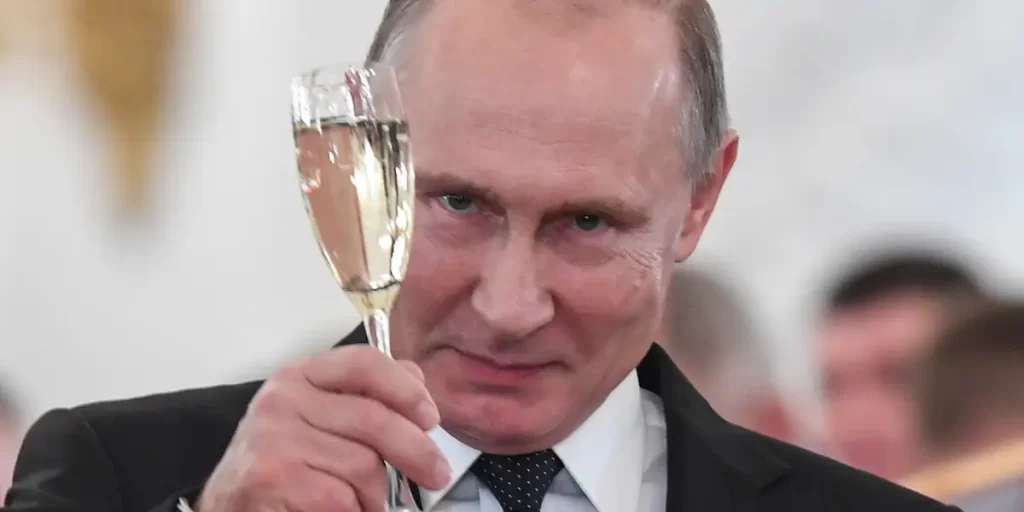
by Lev Tsitrin
As any Soviet school kid, I knew from the early age that humanity progressed by leaping from one “socioeconomic formation” to the next. It was like giving birth: new technological developments impregnated the old society with the new order that, when it ripened, left the womb in the agony of revolution.
As tools improved from an obsidian ax to a bow and arrow, than to metal implements that were followed by steam-powered machinery, the society changed correspondingly, progressing from primitive hunter-gatherers, to slave-owners of ancient Greece and Rome, onto feudal networks based on aristocrat-owned agricultural estates, to be supplanted by capitalist, industrial societies based on craftsmen and bankers who lived in the cities. As Marx and his ilk extrapolated the exponential curve of human progress and predicted the world to come, they prophesied communism — an ultimate society that would sweep away private ownership of machinery, creating a new, communist man immune to greed, and ushering in the age of universal sharing, abundance and happiness — the proverbial End of History.
Well, the empirical experience fell far short of that theory. Hard as they tried, communists failed — so far at least — to engineer the greed-less “new man.” Somehow, even those on the communist Olympus prefer to live rather well. Members of communist Politburoes are no selfless St. Fransiss of Assisi with party membership cards. While they denounce capitalist excesses, communist leaders prefer to indulge in them — perhaps to be better acquainted with what they hate, so as to hate it stronger. Servants, bodyguards, mistresses, luxury apartments, country estates, huge accounts burden communist leaders wherever there is communism.
Where does this wealth come from? After all, communism that is so glorious on paper proved to generate poverty rather than wealth. Communism being no good, and capitalism being ideologically alien, what is it that generates wealth for the few on the communist top? The answer is: feudalism. Back in their days, kings, dukes, counts and barons enjoyed a good life. Clearly, feudalism works all right — for the ruling class.
Feudalism is, quite simply, a closed network of the ruler’s close relatives and cronies that own the wealth of the realm. Under feudalism, one is close to the top not because he is brilliant or enterprising — but because he is related to the right people, and knows how the game is played: who to shake down, and who to bribe. The power of the state and the judiciary being in the right hands, who is there to fear?
Having shaken off communism after perestroika, Russia reverted to feudalism in its purest form. “Members of Mr. Putin’s family circle are beneficiaries of a kleptocratic system that Mr. Putin rules over like a mafia don, with oligarch lieutenants paying him tribute in the form of wealth, lucrative jobs or luxurious villas lavished on his family and those in the potential orbit of his affection” according to a New York Times’ long feature article https://www.nytimes.com/2022/05/13/world/europe/putin-family-wealth-sanctions.html that focuses on Mr. Putin’s family wealth. But this is exactly what feudalism is. No need to call Putin a “mafia don” — mafia itself is a classic example of a feudal system.
Back in the middle ages, feudalism enmeshed the world in warfare. Monarchs sought dynastic marriages that would expand their realms — and disputes over inheritance among royal cousins resulted in warfare. Succession was a constant trigger of wars in Europe (the Norman conquest and the Hundred-years war were such); battles between relatives waged nowadays in probate courts, were fought by the armies in the field, the adversarial cousins and uncles who led those armies being kings of England, Spain or France. And Russia’s war with Ukraine follows exactly the same, feudal pattern: Putin feels that Ukrainian independence deprived Russia of what was Russia’s own for close to three centuries. To him, the war on Ukraine is the war over inheritance — a feudal war so familiar to us from history books, thought armored knights and quick-eyed archers are replaced by tanks and Javelin missiles.
Russians keep experimenting. In 1917 they tried to leapfrog into the bright future of communism — which, after seventy years of terror and misery, proved to be a disaster. Under Putin, Russia went back to feudalism — which produced the misery of the war with Ukraine, Both the utopian future and the romanticized past proving to be poor goals, may be living in the capitalist, mercantile present — in which the government’s function is limited to making sure that the political and economic playing field is level for every citizen, and the government itself is controlled by the public is the best option for Russia — and, for that matter, for other countries, too?
- Like
- Digg
- Tumblr
- VKontakte
- Buffer
- Love This
- Odnoklassniki
- Meneame
- Blogger
- Amazon
- Yahoo Mail
- Gmail
- AOL
- Newsvine
- HackerNews
- Evernote
- MySpace
- Mail.ru
- Viadeo
- Line
- Comments
- SMS
- Viber
- Telegram
- Subscribe
- Skype
- Facebook Messenger
- Kakao
- LiveJournal
- Yammer
- Edgar
- Fintel
- Mix
- Instapaper
- Copy Link







One Response
Helpful and interesting.